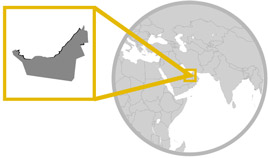Housing and living expenses in Kuwait can vary widely depending on your lifestyle, location, and accommodation preferences. Kuwait is known for its diverse range of housing options, from modern apartments in urban areas to spacious villas in residential compounds. Here are some key factors to consider regarding housing and living costs in Kuwait:
1. Housing:
Rent: Rent is a significant expense in Kuwait. The cost of accommodation varies depending on factors such as location, size, and the type of housing. Rental rates can be higher in popular expatriate neighborhoods and lower in suburban areas.
Types of Housing: In Kuwait, you can find various types of housing, including apartments, villas, and townhouses. Expatriates often live in apartment buildings or residential compounds.
Furnished vs. Unfurnished: Rental properties in Kuwait are typically offered as either furnished or unfurnished. Furnished apartments or villas may be more expensive but can be convenient for expatriates who don't want to bring their own furniture.
Utilities: You'll need to budget for utilities, including electricity, water, and gas. The cost of utilities can vary based on your usage and the season.
2. Transportation:
Public Transportation: Kuwait has limited public transportation options, primarily consisting of buses. However, many residents rely on private vehicles for daily commuting.
Fuel Costs: Fuel is relatively inexpensive in Kuwait due to government subsidies. Gasoline prices are among the lowest in the world.
Vehicle Expenses: If you plan to own a car in Kuwait, consider expenses such as vehicle registration, insurance, maintenance, and parking fees.
3. Groceries and Food:
Groceries: The cost of groceries and food items can vary based on where you shop and your dietary preferences. Local markets (souks) often have fresh produce, meats, and spices at competitive prices.
Dining Out: Kuwait offers a wide range of dining options, from street food stalls to fine dining restaurants. Eating out can be affordable, but upscale restaurants can be relatively expensive.
4. Education:
School Fees: If you have school-age children, you'll need to budget for tuition fees if they attend private or international schools. These fees can vary widely depending on the school's reputation and curriculum.
5. Healthcare:
Health Insurance: Many employers provide health insurance for their employees. However, it's essential to have adequate health insurance coverage, either through your employer or a private policy, as medical costs can be high.
6. Entertainment and Leisure:
Recreational Activities: Kuwait offers various entertainment and recreational activities, including shopping malls, cinemas, sports clubs, and cultural events. Costs for leisure activities can vary.
7. Miscellaneous Expenses:
Phone and Internet: Budget for mobile phone and internet services, which are essential for communication and connectivity.
Personal Care: Expenses related to personal care products and services, such as toiletries, haircuts, and spa treatments, should also be considered.
It's important to note that Kuwait is known for its high standard of living, and many expatriates receive competitive salary packages that include housing allowances and other benefits. Your living expenses in Kuwait will depend on your lifestyle choices and how well you manage your budget. It's advisable to create a detailed budget based on your individual circumstances to ensure that you can comfortably cover your living expenses while in Kuwait.

